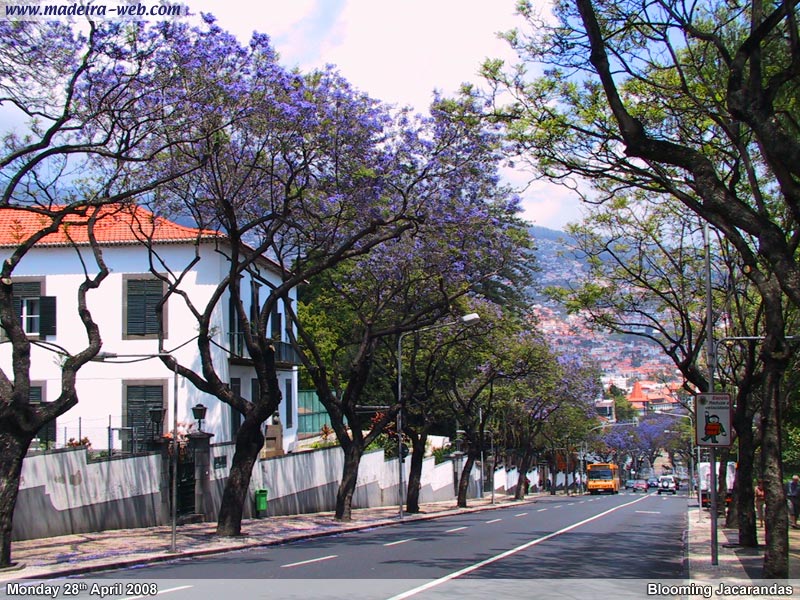Mais uma para chatear os profetas da desgraça!
Cá vai o artigo em causa:
TREATING, NOT PUNISHING
Aug 27th 2009
The evidence from Portugal since 2001 is that decriminalisation of drug
use and possession has benefits and no harmful side-effects
IN 2001 newspapers around the world carried graphic reports of addicts
injecting heroin in the grimy streets of a Lisbon slum. The place was
dubbed Europe's "most shameful neighbourhood" and its "worst drugs
ghetto". The TIMES helpfully managed to find a young British backpacker
sprawled comatose on a corner. This lurid coverage was prompted by a
government decision to decriminalise the personal use and possession of
all drugs, including heroin and cocaine. The police were told not to
arrest anyone found taking any kind of drug.
This "ultraliberal legislation", said the foreign media, had set alarm
bells ringing across Europe. The Portuguese were said to be fearful
that holiday resorts would become dumping-grounds for drug tourists.
Some conservative politicians denounced the decriminalisation as "pure
lunacy". Plane-loads of foreign students would head for the Algarve to
smoke marijuana, predicted Paulo Portas, leader of the People's Party.
Portugal, he said, was offering "sun, beaches and any drug you like."
Yet after all the furore, the drug law was largely forgotten by the
international and Portuguese press--until earlier this year, when the
Cato Institute, a libertarian American think-tank, published a study of
the new policy by a lawyer, Glenn Greenwald.*[1] In contrast to the
dire consequences that critics predicted, he concluded that "none of
the nightmare scenarios" initially painted, "from rampant increases in
drug usage among the young to the transformation of Lisbon into a haven
for 'drug tourists', has occurred."
Mr Greenwald claims that the data show that "decriminalisation has had
no adverse effect on drug usage rates in Portugal", which "in numerous
categories are now among the lowest in the European Union". This came
after some rises in the 1990s, before decriminalisation. The figures
reveal little evidence of drug tourism: 95% of those cited for drug
misdemeanours since 2001 have been Portuguese. The level of drug
trafficking, measured by numbers convicted, has also declined. And the
incidence of other drug-related problems, including sexually
transmitted diseases and deaths from drug overdoses, has "decreased
dramatically".
There are widespread misconceptions about the Portuguese approach. "It
is important not to confuse decriminalisation with depenalisation or
legalisation," comments Brendan Hughes of the European Monitoring
Centre for Drugs and Drug Addiction, which is, coincidentally, based in
Lisbon. "Drug use remains illegal in Portugal, and anyone in possession
will be stopped by the police, have the drugs confiscated and be sent
before a commission."
Nor is it uncommon in Europe to make drug use an administrative
offence rather than a criminal one (putting it in the same category as
not wearing a seat belt, say). What is unique, according to Mr Hughes,
is that offenders in Portugal are sent to specialist "dissuasion
commissions" run by the government, rather than into the judicial
system. "In Portugal," he says, "the health aspect [of the government's
response to drugs] has gone mainstream."
The aim of the dissuasion commissions, which are made up of panels of
two or three psychiatrists, social workers and legal advisers, is to
encourage addicts to undergo treatment and to stop recreational users
falling into addiction. They have the power to impose community work
and even fines, but punishment is not their main aim. The police turn
some 7,500 people a year over to the commissions. But nobody carrying
anything considered to be less than a ten-day personal supply of drugs
can be arrested, sentenced to jail or given a criminal record.
Officials believe that, by lifting fears of prosecution, the policy has
encouraged addicts to seek treatment. This bears out their view that
criminal sanctions are not the best answer. "Before decriminalisation,
addicts were afraid to seek treatment because they feared they would be
denounced to the police and arrested," says Manuel Cardoso, deputy
director of the Institute for Drugs and Drug Addiction, Portugal's main
drugs-prevention and drugs-policy agency. "Now they know they will be
treated as patients with a problem and not stigmatised as criminals."
The number of addicts registered in drug-substitution programmes has
risen from 6,000 in 1999 to over 24,000 in 2008, reflecting a big rise
in treatment (but not in drug use). Between 2001 and 2007 the number of
Portuguese who say they have taken heroin at least once in their lives
increased from just 1% to 1.1%. For most other drugs, the figures have
fallen: Portugal has one of Europe's lowest lifetime usage rates for
cannabis. And most notably, heroin and other drug abuse has decreased
among vulnerable younger age-groups, according to Mr Cardoso.
The share of heroin users who inject the drug has also fallen, from 45%
before decriminalisation to 17% now, he says, because the new law has
facilitated treatment and harm-reduction programmes. Drug addicts now
account for only 20% of Portugal's HIV cases, down from 56% before. "We
no longer have to work under the paradox that exists in many countries
of providing support and medical care to people the law considers
criminals."
"Proving a causal link between Portugal's decriminalisation measures
and any changes in drug-use patterns is virtually impossible in
scientific terms," concludes Mr Hughes. "But anyone looking at the
statistics can see that drug consumption in 2001 was relatively low in
European terms, and that it remains so. The apocalypse hasn't happened."
*"Drug Decriminalisation in Portugal: Lessons for Creating Fair and
Successful Drug Policies.[2]" By Glenn Greenwald.
Etiquetas: Sociedade





